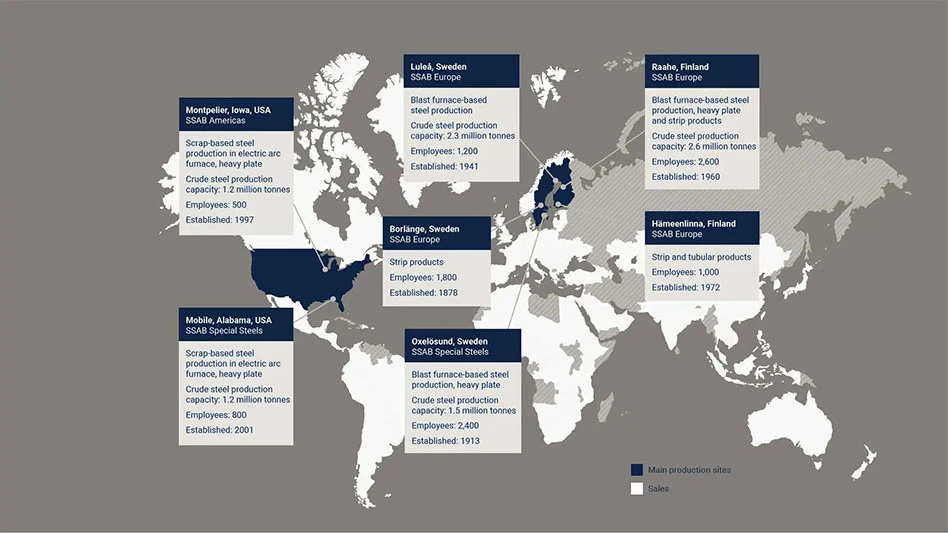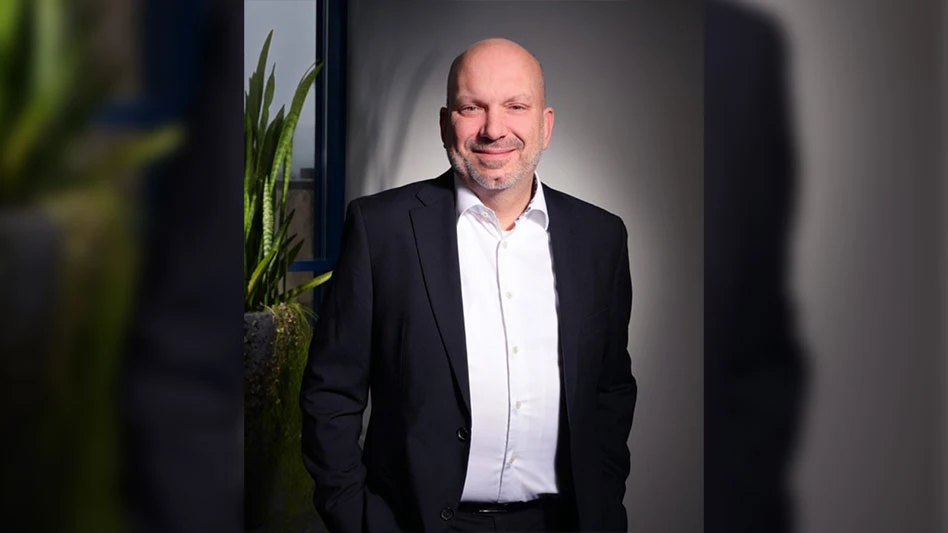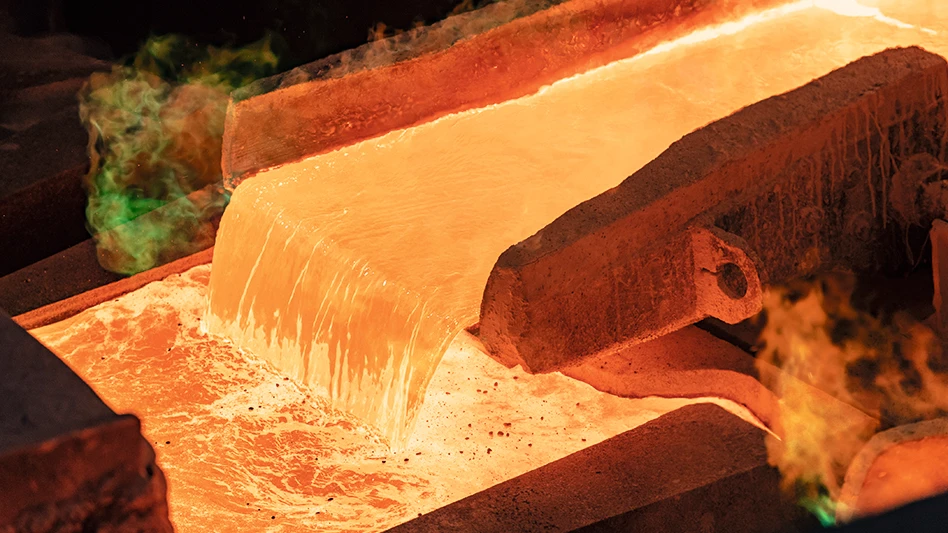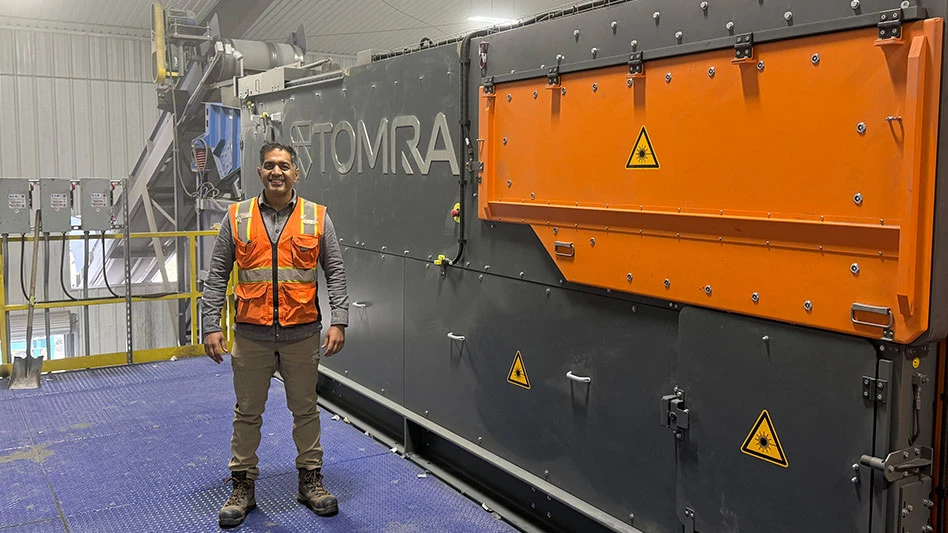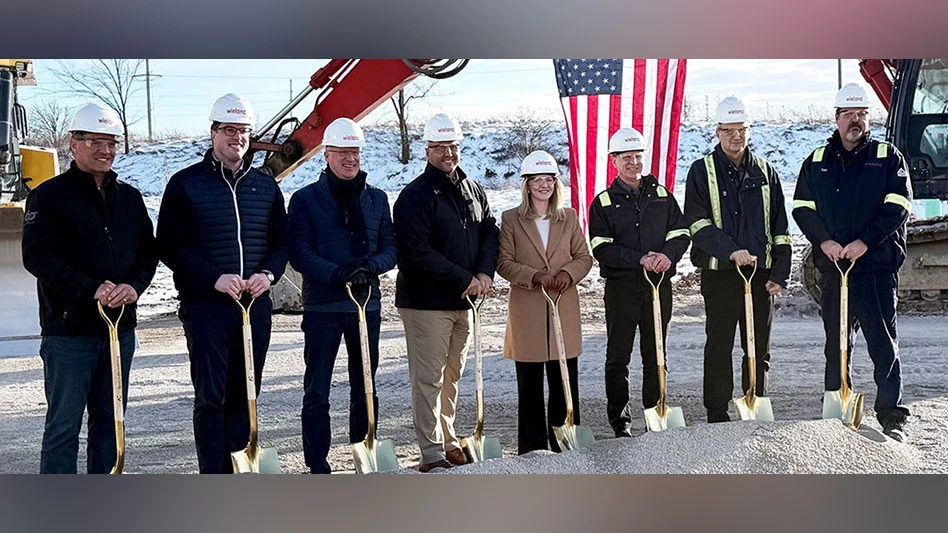
Logo courtesy of the Recycled Materials Association
During the Preventative Maintenance Roundtable at the Recycled Materials Association (ReMA) 2025 Convention & Exposition, industry experts underscored the importance of fostering a strong safety culture and integrating preventive maintenance practices at recycling facilities.
The May 15 session, moderated by Gerald Sjogren, senior director of safety for ReMA, offered practical insights into mitigating downtime, workplace hazards and building a proactive, safety-first mindset among employees.
ReMA 2025 took place between May 12-15 at the San Diego Convention Center.
Starting from the top
Sjogren began the session by encouraging attendees to share their personal professional experiences in these areas.
“I thought [we could] share and talk about some things and ideas that we have. But we’re going to get more out of this if you folks share some of your experiences,” he said, adding that enhancing maintenance programs isn’t just beneficial from a risk management standpoint, it also can help mitigate downtime and help operators reduce their insurance costs.
Critical spares and reciprocal agreements
Among the most important components of maintenance programs, said Amwins Program Underwriters' RecycleGuard program Assistant Vice President and Underwriting Manager Susan Diecidue, is to have spare parts on hand.
Diecidue is based in Boston, but Amwins has 120 locations throughout the U.S.
“If you don’t, you’re going to be down longer, and the longer you’re down, the less income you’re going to make, and the more your insurance claims will go up,” she said.
“When we look at an account, we look at those losses. So, it grows and grows and grows, and the larger it is, the harder it is to get insurance and the terms and conditions that you might want or need.”
The key, she added, is to be preventive, noting that operators can find value in making a deal with a provider that will keep and store critical spares in exchange for putting a small deposit down as opposed to buying the whole part outright.
“There are solutions, but again, in the big picture, if you’re not preventative, you’re potentially going to incur a big loss. You’re going to be [unable to operate], you’re going to still have to pay [your] workers, and you’re still going to have to pay the electricity [bill] and everything else,” she said. “If you have business income coverage, the carrier will be footing the bill, and, ultimately, [this] reflects on the way your account goes to the underwriter.”
Sjogren agreed.
If the part that’s needed is in Germany, “that’s going to be on a slow boat,” he said. “If you get it that soon. And now you have downtime. “One of the suggestions that we’d like to share is that you should be communicating with those suppliers, and you should be communicating with the manufacturers” to learn how long it will take spares to arrive if they’re needed urgently.
Diecidue also noted that developing reciprocal agreements with other facilities can be beneficial. For example, offering another operator a portion of revenue if they’re able to process your materials at their facility.
“Come up with solutions before the accident happens,” she said. “There are benefits.”
Getting employees to buy into equipment checks
Helping equipment operators understand the importance of conducting equippment checks also is important, Sjogren said.
“When I was doing checks on equipment and trucks, one of the big things I was looking for was whether they had lines chafing,” he noted, adding that oftentimes things are happening on equipment that people should be noticing. “There are fun things you can do with this.”
For example, if owners can get hold of a dip stick that goes to a particular vehicle, you can cut that stick short and announce a program where whoever finds the “short stick” gets a gift card or free lunch.
“Make it fun [while] encouraging people to look for stuff because you can’t be everywhere at the same time,” he continued, highlighting the importance of getting equipment operators to buy into performing regular checks on their machinery.
“[They] are literally in tune with that machine. [They] are part of that machine. [They] hear every noise, feel every bump and, if there’s anything different, they [should] know right away,” he said.
“So, understand that the people you’re putting in are responsible for that equipment, and sometimes it may not be the right people, and you [have to] pay attention to that. “[You also have to] look at what your downtime is, and you [have to] look at the reasons for your downtime, and you may want to make some decisions based on that.”
Using thermal imaging to prevent fires
Sjogren also stressed the importance of using thermal imaging devices to mitigate fire hazards.
“You need to be [using thermal imaging] to check your electrical circuitry,” he added. “You should be doing that at least once a year. If you own your own camera, you can actually walk by panels pretty quick to see if there are any hot spots [that could potentially turn into a fire.]
Vermont-based Casella Waste Systems Vice President of Safety Michael Hughes and Washington-based RIOS (Recycling Industry Operating Standard) certification Executive Director Shannon Fertitta agreed, pointing out that thermal imagers increasingly have become affordable and, in some cases, can be purchased for less than $600.
“It’s something that anybody should have,” Fertitta said. “At least one or two.”
Thermal imaging, Sjogren continued, also can alert operators as to how motors are performing and whether they’re starting to overheat, all of which can help mitigate downtime.
“Motors can cook themselves and burn up a lot of things, so those thermal imaging cameras are a huge tool for you to use and, as you’ve heard, they’re really not that costly,” he said.
Diecidue noted that proactivity also can help mitigate insurance claims, which can help keep companies’ insurance costs down.
“Don’t forget, a huge portion of claims that we see are due to wiring issues,” she said. “Being proactive versus waiting for them to [severely damage equipment] and potentially lose the whole piece [of equipment] is huge.”
Latest from Recycling Today
- Eriez expands European sales network
- Gränges increases sales volume in 2025
- Aduro selects Netherlands as site for industrial scale-up facility
- Nasco-Op declares dividend
- Cyclic Materials announces plans for South Carolina campus
- WM reports revenue, earnings growth in Q4 and full-year 2025
- Solarcycle’s Cedartown, Georgia, recycling facility opens
- Stadler equips Spanish MRF
